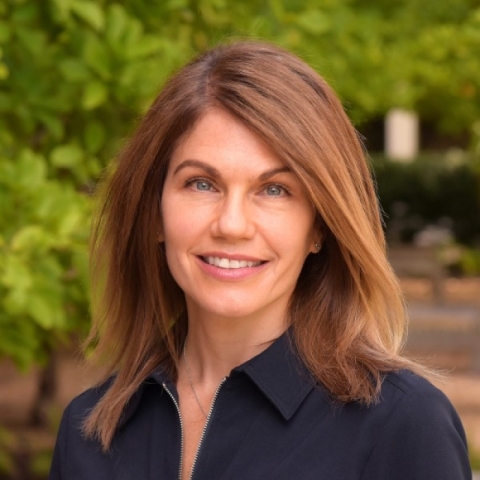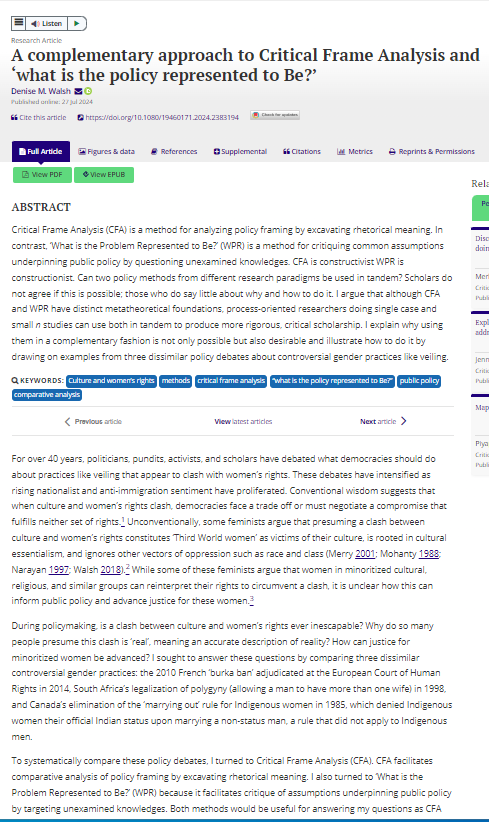
Denise Walsh
Levering Hall, Room 202
Fall 2025 | T 3:30-4:00pm & By Appointment
Degrees
New School for Social Research, New York, NY
Ph.D., Department of Political Science
Biography
Denise Walsh is an Associate Professor in the Department of Politics whose research investigates how liberal democracies can become more inclusive and just. Her most recent book, Imperial Sexism: Why Culture and Women’s Rights Don’t Clash (Oxford University Press, 2025) compares policy debates about the face veil ban in France, polygyny in South Africa, and Indigenous women’s Indian status in Canada. She argues that a clash between culture and women's rights is never inescapable, discusses what fuels this widely held perception, and explains how justice can be advanced for minoritized women and their communities.
Walsh also is working on projects that impede women’s political participation, including a new book project, Misogyny in Power: How Democracy and Women’s Rights Fall Together, a working paper, “New Solutions to Violence Against Women in Politics,” co-authored with Zach Watson, and a co-edited symposium on "Backlash and the Future of Feminism" (Signs, January 2020). Her first book, Women’s Rights in Democratizing States (Cambridge University Press, 2010), compares South Africa, Poland, and Chile to argue that when debate is more open and inclusive in institutions such as unions and political parties, women’s rights advance.
Walsh’s research has been funded by the Institute for Advanced Studies at Notre Dame, the National Science Foundation, USAID, the Institute for Women's Studies at the University of Michigan, the Collegio Carlo Alberto in Italy, the Dickey Center for International Understanding at Dartmouth College, and many organizations at the University of Virginia. She is a former editor of the American Political Science Review and has been active in diversifying the profession. Walsh is a recipient of an all-University Teaching Award. She teaches courses on power, violence, and inequality in the global South; identity politics; gender politics in Africa; capitalism, empire, and technopolitics; and feminist, queer, and trans theory.

